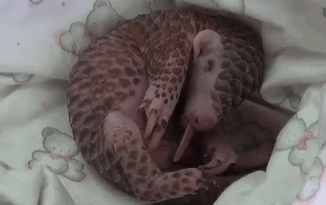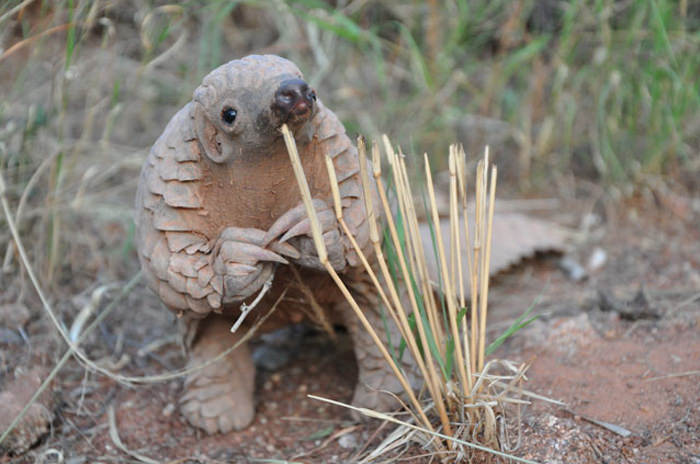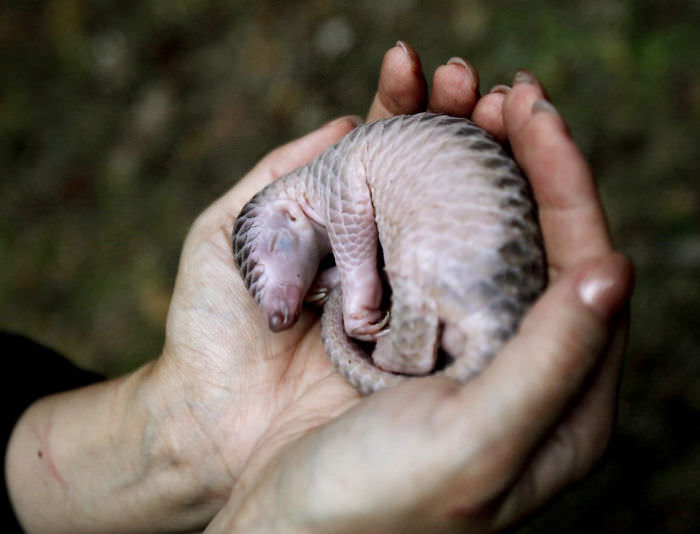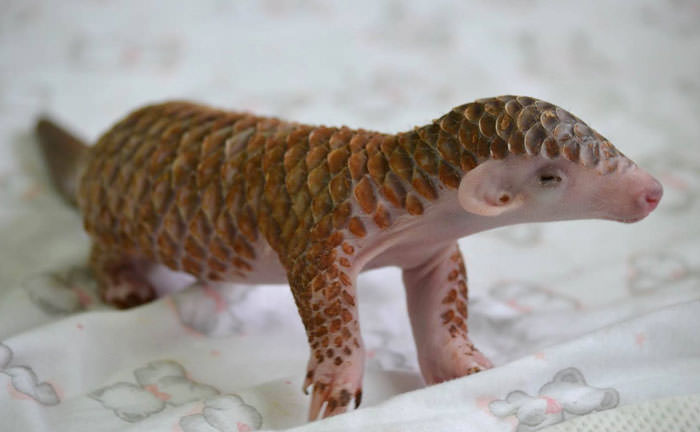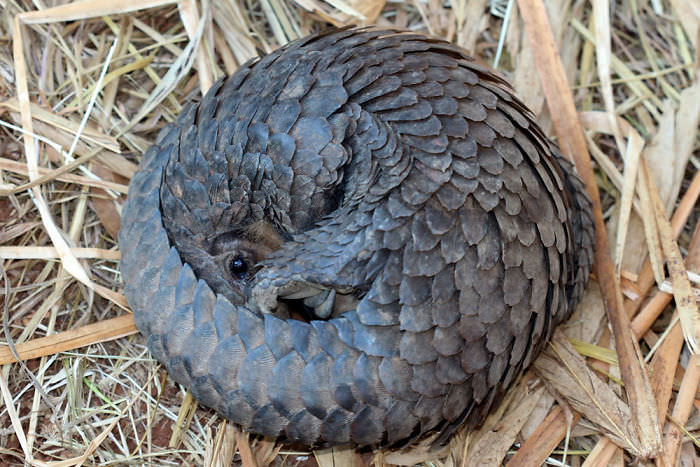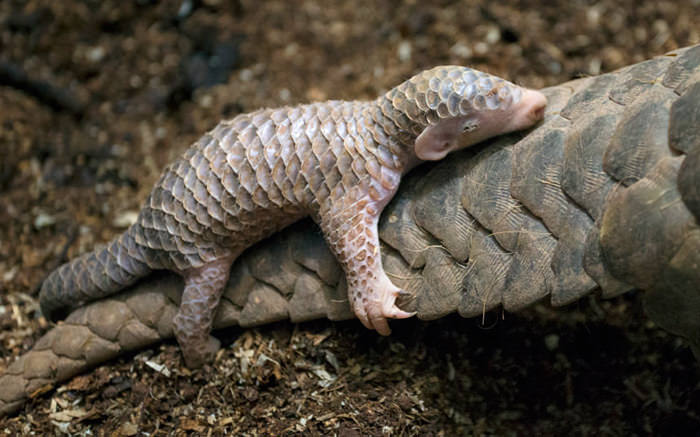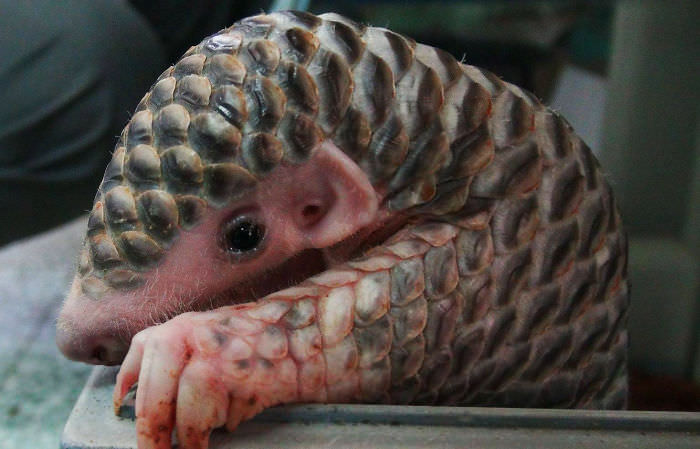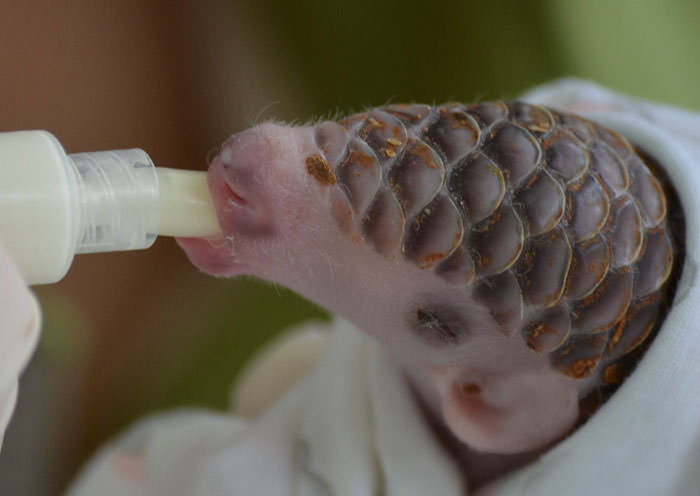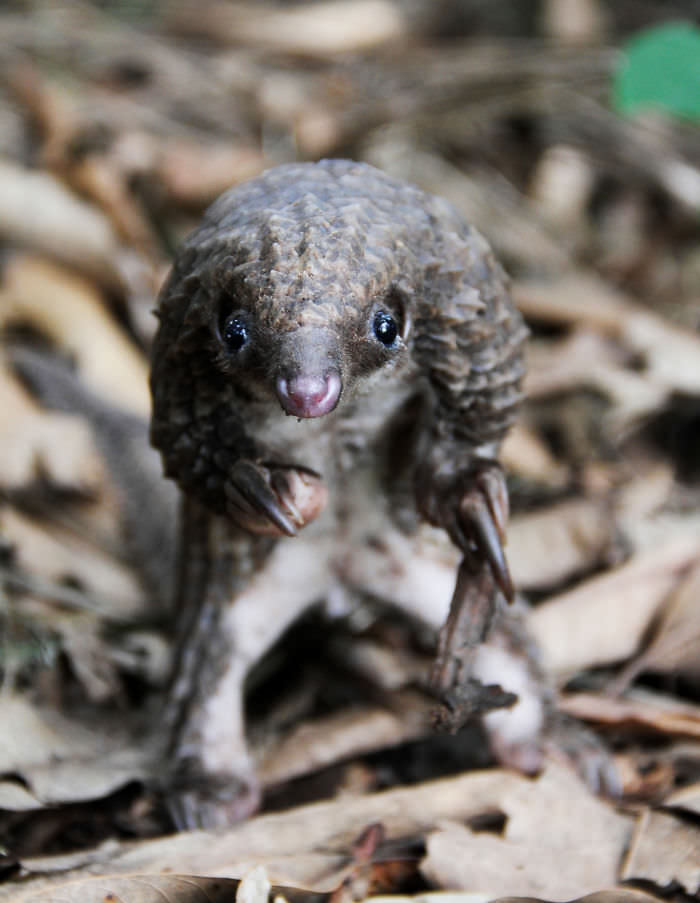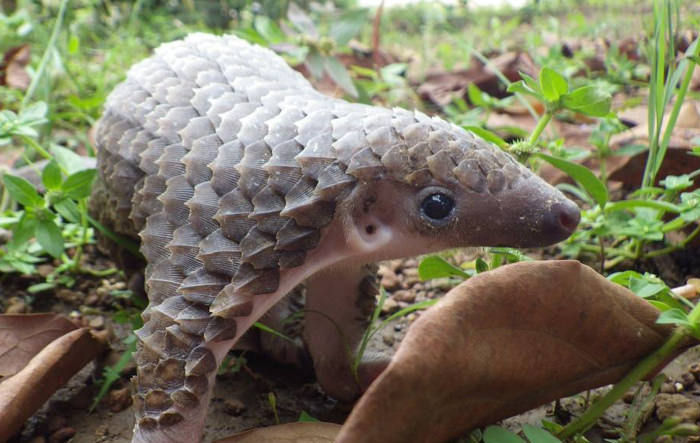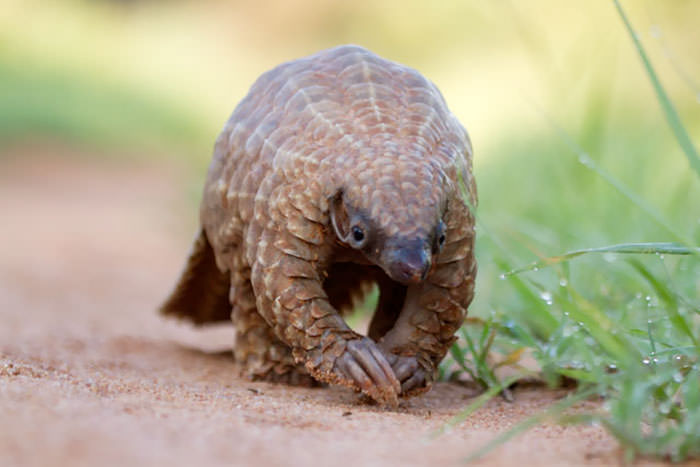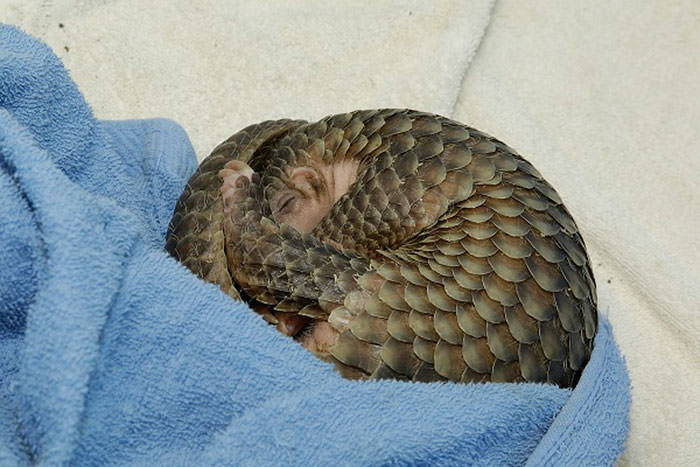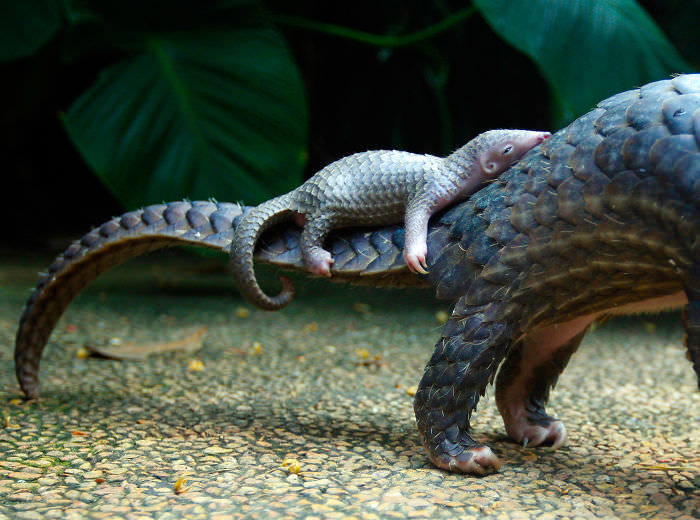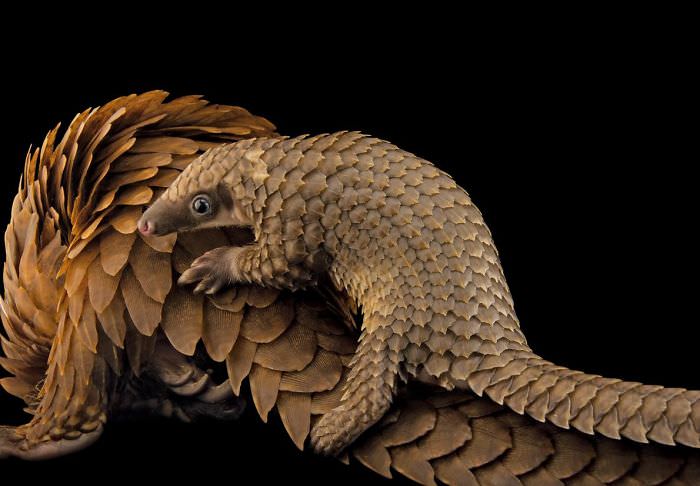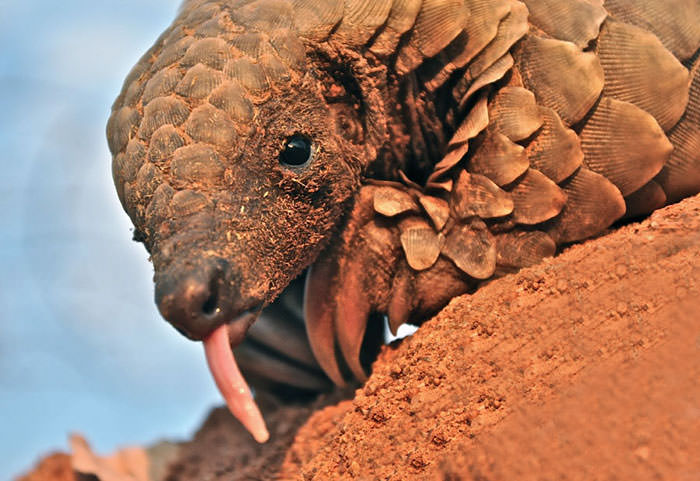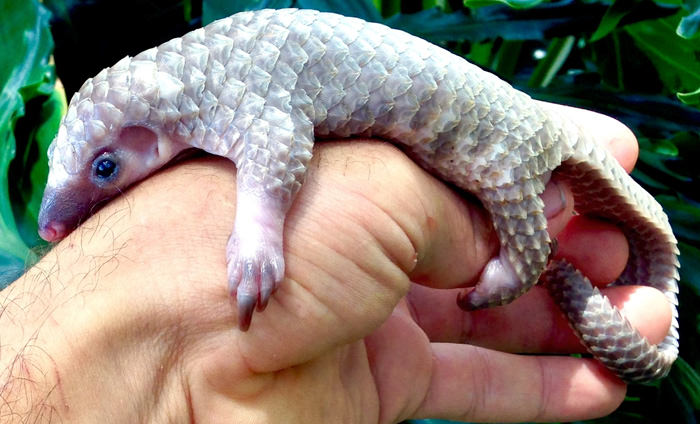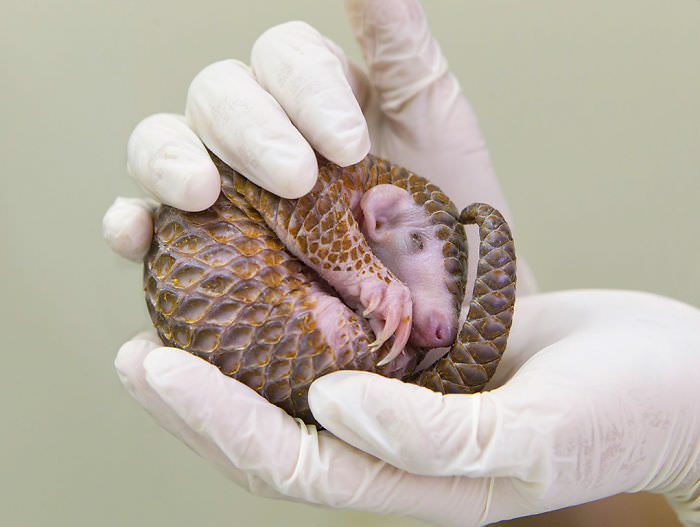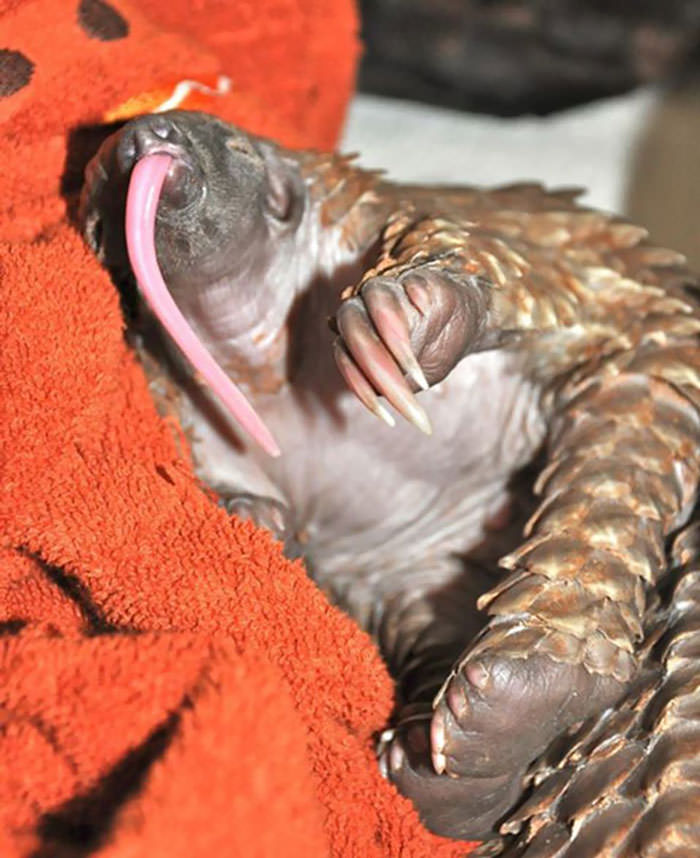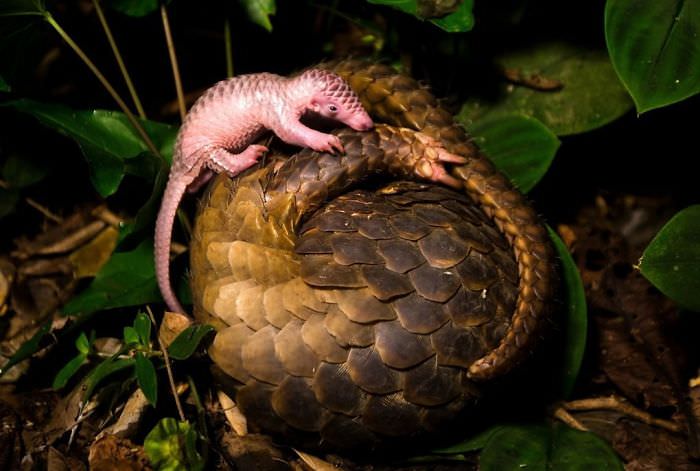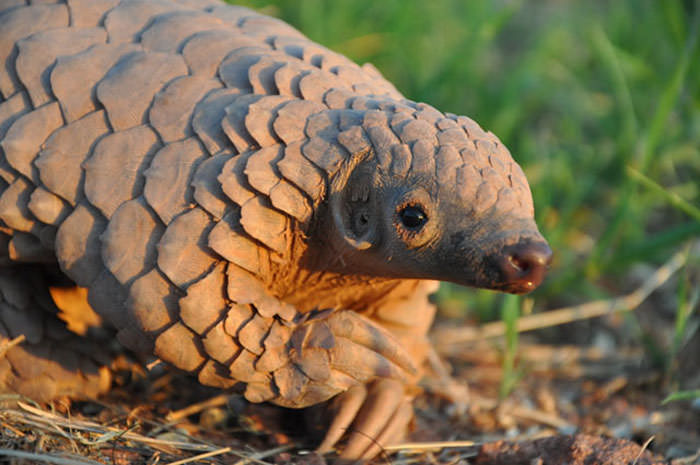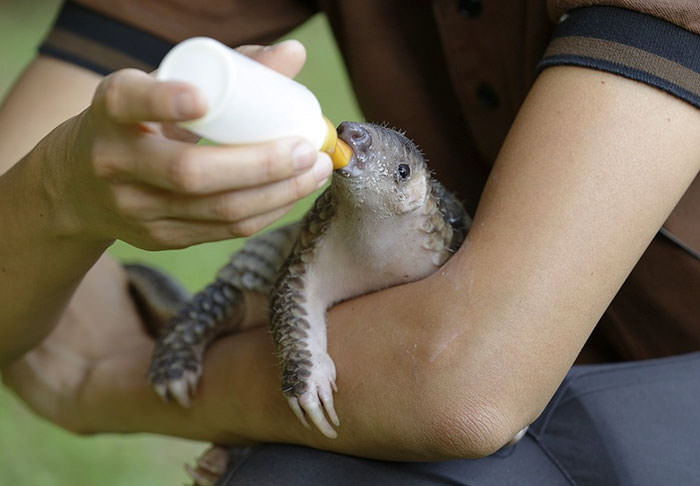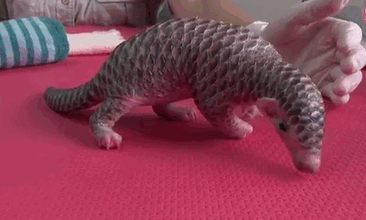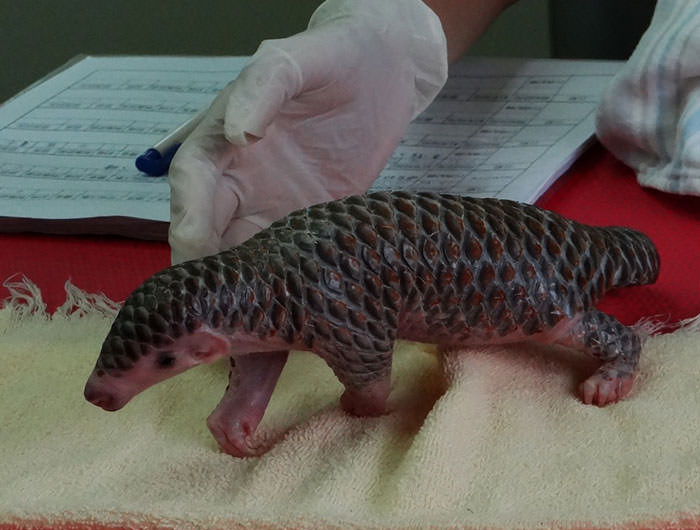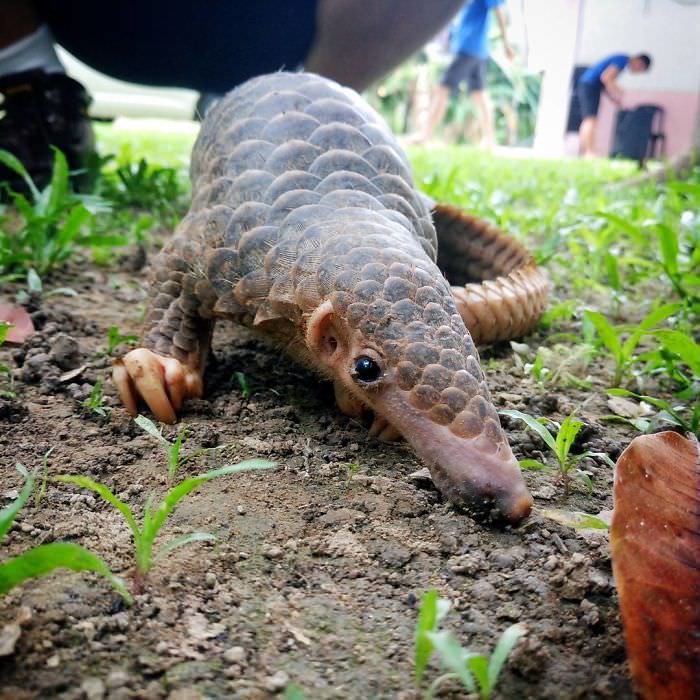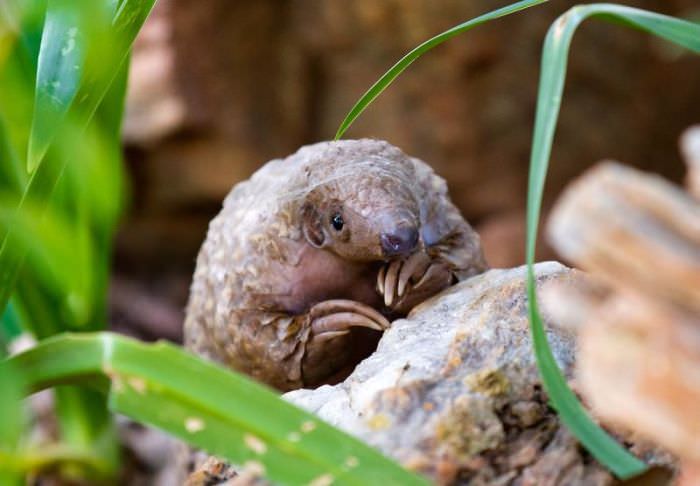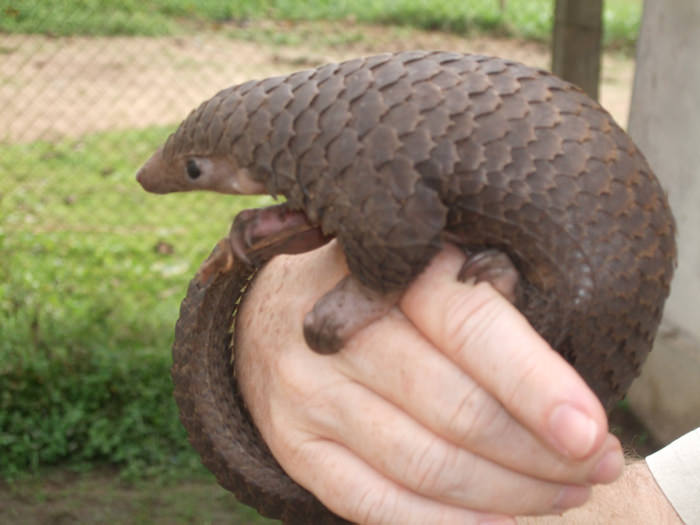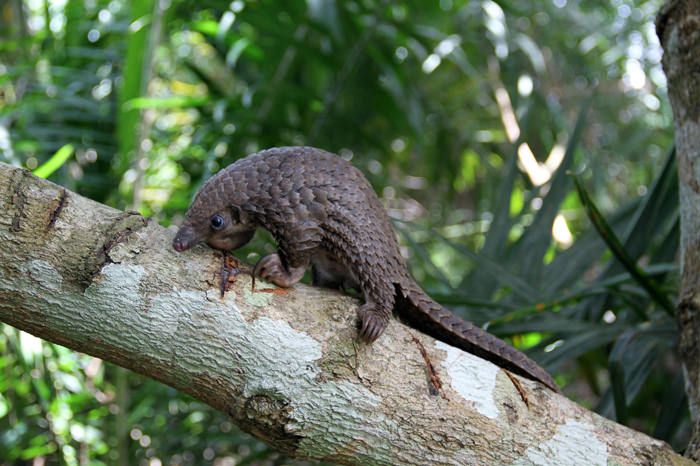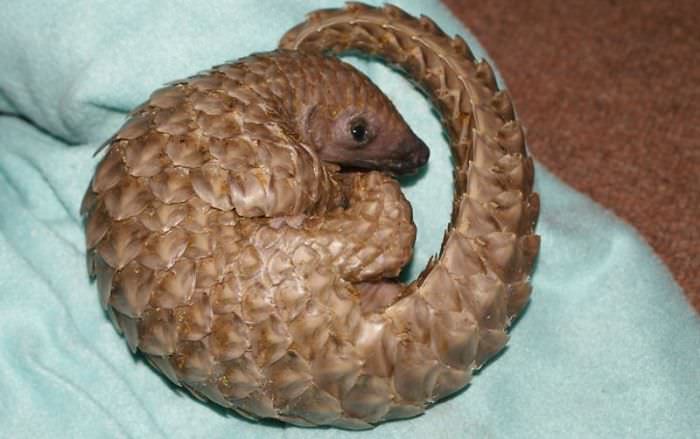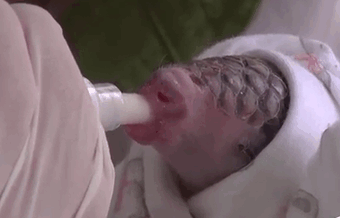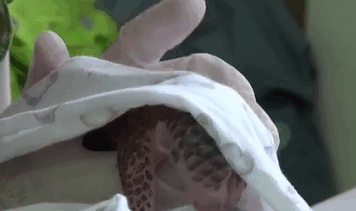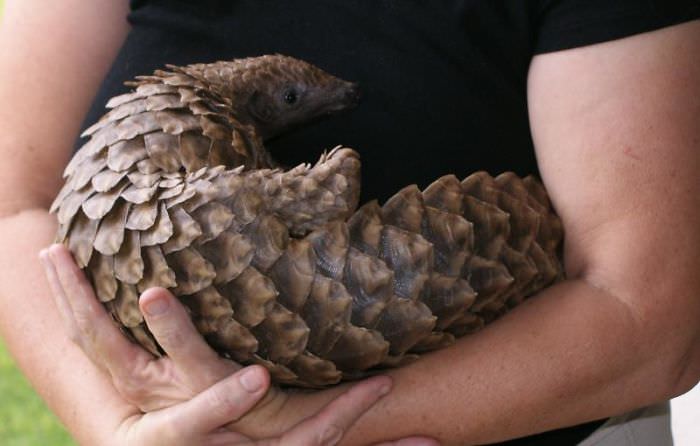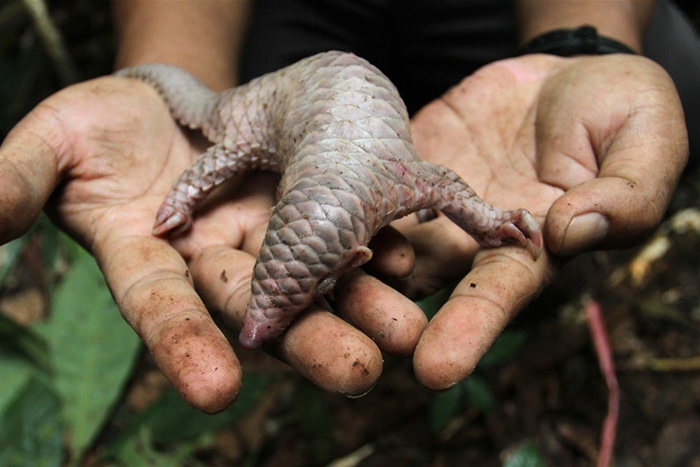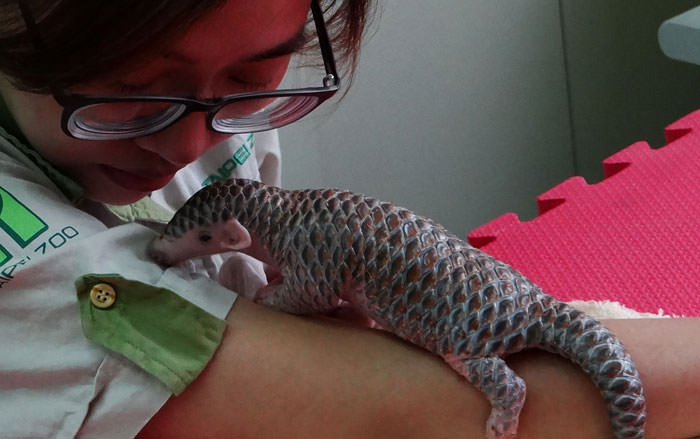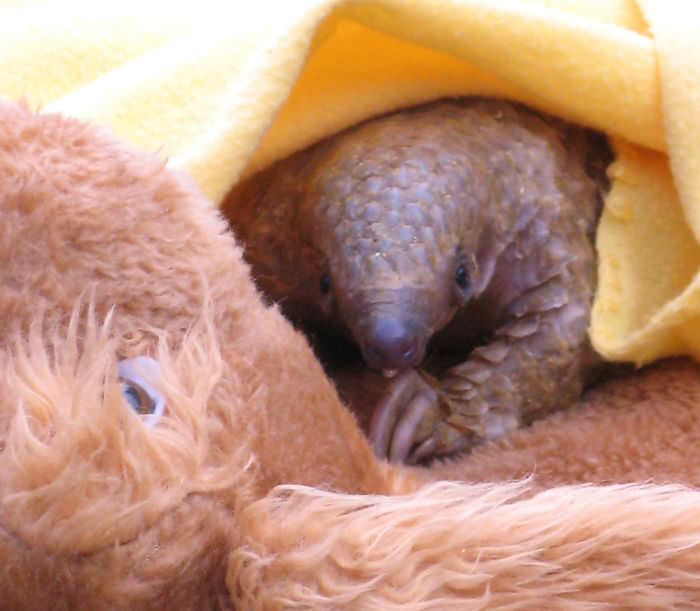Pangolins have been around us for over 80 million years. The word pangolin comes from the Malay word pengguling, which means to roll up. There are eight species of pangolin. The pangolin is a solitary animal that is primarily active at night. Most of them live on the ground, but some climb trees, such as the black-bellied pangolin. The sizes range from small housecats to more than four feet long. Pangolins have long snouts and even longer tongues, which they use to eat termites and ants dig up from mounds with their powerful front claws. When they eat, they can close their noses and ears to keep ants out. They are closely related to bears, cats, and dogs, even though they look and act like anteaters and armadillos. As a defense mechanism, they secrete a stinky fluid from a gland at the base of their tails to cover their scales, which gives them the nickname ‘scaly anteater.’ When threatened, they roll into balls, like an armadillo, and they are covered with scales made of keratin, the same material as human fingernails.
Pangolins only spend time together during mating and birth. It is common for pangolin fathers to stay in the den until the single offspring is independent. When Pangolin babies are born, their scales are soft but harden within two days. They will ride on their mothers’ backs until they are weaned at about three months. Pangolins give birth to one live baby after a gestation period of five months. At birth, babies, called pangopups, are only about 6 inches. Pangolin babies often ride on their mother’s tails. In danger, a mother will wrap herself around her baby to protect it. A baby will consume its mother’s milk until three to four months old and start eating insects at one month. They are sexually mature between the ages of two and five.
The IUCN has listed Chinese, Sunda, Indian, and Philippine pangolins as critically endangered. Ground pangolins, giant pangolins, white-bellied pangolins, and black-bellied pangolins are all vulnerable species in Africa. They are all threatened by illegal trade. It is believed to be the most trafficked nonhuman animal in the world. The meat of pangolins is highly prized among some ultra-wealthy in China and Vietnam, who use the scales for traditional Chinese medicine. Thousands of pangolins are killed every year for their scales.
Here are some adorable photos of Pangolin babies that will make your day.



